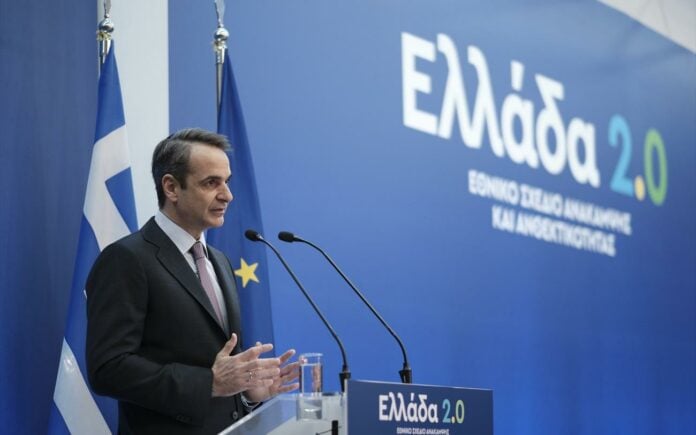Greek Prime Minister Kyriakos Mitsotakis unveiled his government’s post-Covid19 recovery plan on Wednesday, pledging a wide array of projects, investments and initiatives worth a whopping 57 billion euros – an ambitious figure and prospect that only a few years ago would have sounded comical in thrice-bailed out Greece.
Dubbed the ” National Recovery and Resilience Plan”, the conservative Greek leader said the plan consists of 170 actions and goals, with the target being a GDP increase of seven percentage points over the next six years – on top of normally expected economic growth.
Looking to the post-pandemic immediate future, Mitsotakis and his Cabinet must now oversee a jumpstart of the Greek economy and ensure rapid growth to recover from a more than a year of recession and social discontent from months of lockdown.
Among others, he promised an accelerated digital economy and bureaucracy with the rapid implementation of 5G networks on the mainland and islands, real estate development of now unexploited state-owned tracts in urban areas, as well as a handful of infrastructure projects, including the oft-cited and long-awaited new highway across the breadth of coastal northern Crete.
The plan, which was approved by the center-right government’s Cabinet on Monday, will now be tabled in Parliament for debate, before submission to the European Commission next month for approval.
Similar national plans across the Union will be financed by the EU from a 750-billion-euro recovery fund that will be jointly financed and repaid by the entire 27-nation bloc.
“The national plan has a ground-breaking character, because it changes the model for creating an open economy and a growth-friendly tax system and always focused on the future…Hence its name, Greece 2.0. The national plan seeks to create numerous new and well-paid jobs. However, together with the resources of the plan, private citizens are invited to add their own capital, and taking the associated risk,” Mitsotakis said.














